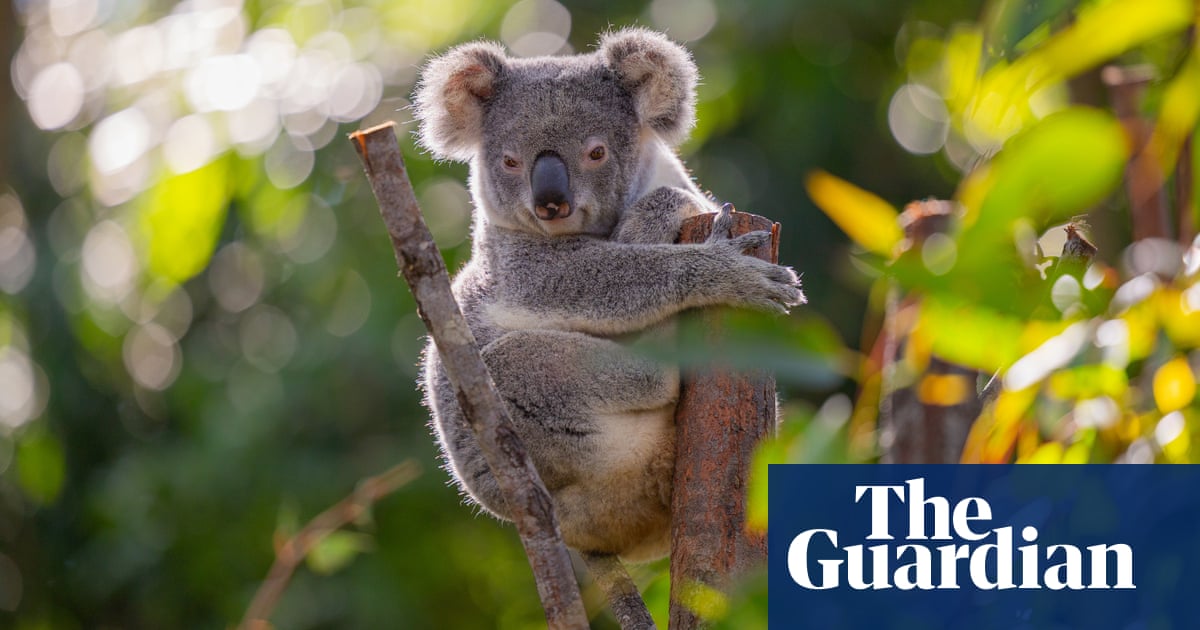Logging of native forest in the proposed great koala national park (GKNP) in northern New South Wales has intensified since the Minns government took office, according to new analysis by conservation advocates.
The report, which the state’s forestry corporation disputes, found 7,185 hectares (17,700 acres) were logged within the promised park in the 21 months since the March 2023 state election.
Dailan Pugh, the president of the North East Forest Alliance, said this was about 8.4% of the area identified for potential logging and included habitat for endangered koalas and another 37 threatened species.
The data has been released before a rally in Coffs Harbour planned for Monday by forest advocates demanding a halt to logging of native forest that could form part of the park. State and federal Greens MPs will also attend.
“They’re still logging areas they’ve identified as high density for koalas,” Pugh said.
“We were promised a world-class national park. That’s been reiterated many times since. We just want that to be done and the degradation to stop.”
Conservationists have become frustrated by the time it is taking the Minns government to fulfil its election promise, finalise an assessment of the area and declare the park’s boundaries, given the government chose not to put a moratorium on logging during the assessment period.
The government has examined at least 176,000 hectares of state forest for possible inclusion in the new national park as well as the potential impact on the forestry industry and the support that may be necessary for affected workers.
A statement released by more than 20 environmental organisations on Friday accused the government of delaying a cabinet decision about the park’s boundaries, which they said had been expected by the end of last year.
“Far from protecting the GKNP, they are accelerating its degradation,” they said.
Pugh is a veteran forest conservationist who sits on the government’s community advisory panel for the park. His report used the NSW Forestry Corporation’s own logging history data, harvesting plans and satellite images to identify the net areas of native forest logged since 2015 when NSW Labor – then in opposition – first promised to establish a great koala national park.
The report finds 20,630 hectares were logged in the 98 months since the party’s 2015 commitment up to the March 2023 state election. In the 21 months since Labor won government, 7,185 hectares had been logged and operations had accelerated, the analysis claims.
“It is evident that under the Minns government logging has greatly accelerated within the boundary of the GKNP, with the area logged increasing from 1,968 ha in the 12 months before the election, to 3,285 hectares in the 12 months after the election, and now to 3,900 hectares in just the past nine months,” the report states.
after newsletter promotion
The NSW agriculture minister, Tara Moriarty, said “the claims in the report are not true” and the government was “getting on with delivering a Great Koala national park while at the same time ensuring a sustainable timber industry”.
“The creation of a Great Koala national park was one of our key election commitments and we will deliver it. The assessment process is nearing conclusion,” she said.
A spokesperson for the NSW Forestry Corporation said the agency disputed the figures and “there has been no increase in timber harvesting in the area subject to assessment for the GKNP”.
“The total area of native forest harvested each year has not increased and is the same as it was in 2019 and the average monthly volume of timber harvested from March 2023 to November 2024 is 15% lower than the average monthly volume harvested from the same area over the 10 years prior,” they said.
They said logging schedules were based on long-term plans where logging was spread out over time and responded to other factors such as weather, fire and market demand.
The NSW Greens environment spokesperson, Sue Higginson, said it was a “political failure” by the Minns government that logging of areas that could be included in the park had continued while the government did its assessment.
“A national park is about protecting the values that logging takes away,” she said. “You’ve actually degraded the very promise you’ve made.”










